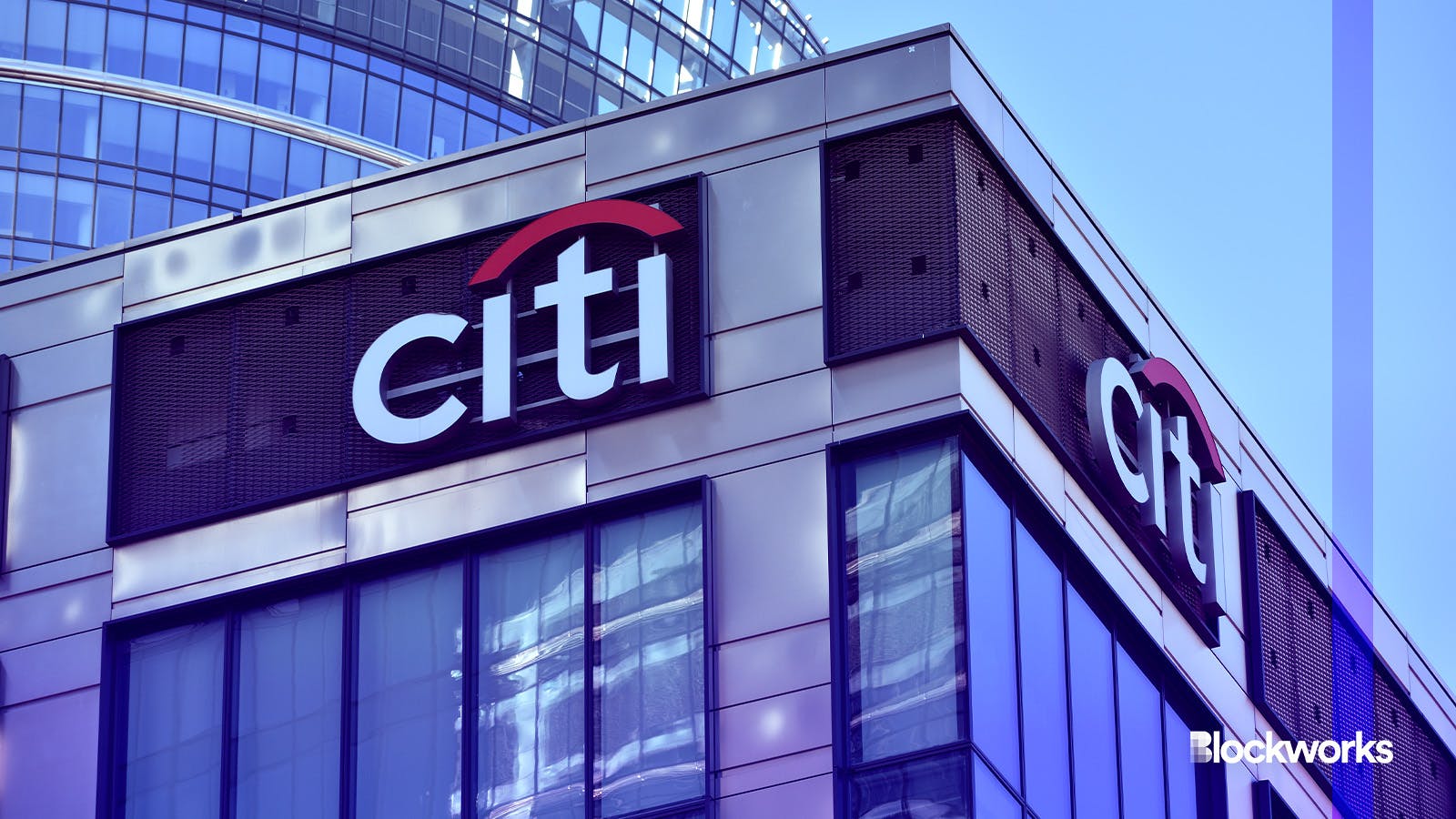Citi the latest TradFi player to test out asset tokenization
Banking giant brings a Wellington Management-issued private equity fund onto Avalanche’s Spruce subnet as part of a proof of concept

OleksSH/Shutterstock modified by Blockworks
Citi is the latest financial firm to test bringing real-world assets onto distributed ledger technology networks, finding that such efforts can offer big advantages over traditional models.
“Tokenization unlocks the value in traditional markets to new use cases and digital distribution channels while enabling greater automation, more standardized data rails and even improved overall operating models, such as those facilitated by digital identity and smart contracts,” the company said in a report.
The company’s findings come after it completed a proof of concept focused on tokenizing a private equity fund issued by Wellington Management.
Tokenizing physical and financial assets — issuing digital representations of debt securities or real estate properties on a blockchain, for example — has been a hot topic over the last year.
Read more: TradFi, DeFi convergence continues through tokenizing real-world assets
Tokenizing traditional assets can offer “meaningful improvements over the status quo and is likely a necessary step for achieving scale,” the Citi report added.
Citi brought the Wellington fund onto Avalanche’s Spruce subnet — a network launched last April for institutions to test on-chain trade execution and settlement. The fund’s distribution rules were encoded into the smart contract and embedded within a token transferred to hypothetical WisdomTree clients.
The private fund token was used as collateral in an automated lending contract with DTCC Digital Assets. The Depository Trust and Clearing Corporation (DTCC) bought Securrency in December to help accelerate the expected greater institutional use of on-chain assets.
Nisha Surendran, Citi Digital Assets’ emerging solutions lead, said in a statement that testing the tokenization of private assets helps in “exploring the feasibility to open up new operating models and create efficiencies for the broader market.”
Surendran added: “Smart contracts and blockchain technology can enable enhanced rule-enforcement at an infrastructure-level, allowing data and workflows to travel with the asset.”
The proof of concept is not exactly a unique development, as tokenization efforts have picked up in recent months.
Fintech company Securitize bought digital asset wealth platform Onramp Invest in August. The acquisition allows the firm to offer tokenized alternatives through systems registered investment advisers (RIAs) are accustomed to using, Securitize said at the time.
JPMorgan in October facilitated a collateral transaction between BlackRock and Barclays via a decentralized application after tokenizing shares of a money market fund.
More recently, crypto company BitGo last week bought Brassica — a firm offering back-end infrastructure services for private securities and alternative investments — in a bid to digitize the alternative asset industry via tokenization.
Read more: BitGo looks to jumpstart RWA tokenization segment via acquisition
Executives at WisdomTree, an asset manager with roughly $100 billion in assets under management, have said they intend to take advantage of what they call an “early mover status in tokenization.” The company last year launched a consumer app that offers bitcoin, ether, dollar and gold tokens, as well as digital funds with share ownership records kept on the Stellar or Ethereum blockchains.
“We believe blockchain-enabled finance is the future of the industry,” Maredith Hannon Sapp, WisdomTree’s head of digital assets business development, said in a statement. “This proof of concept showcases the ability to explore the transferability of tokenized funds and related compliance in different markets.”
Get the news in your inbox. Explore Blockworks newsletters:
- The Breakdown: Decoding crypto and the markets. Daily.
- 0xResearch: Alpha in your inbox. Think like an analyst.






